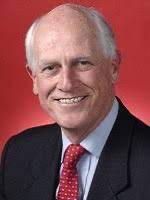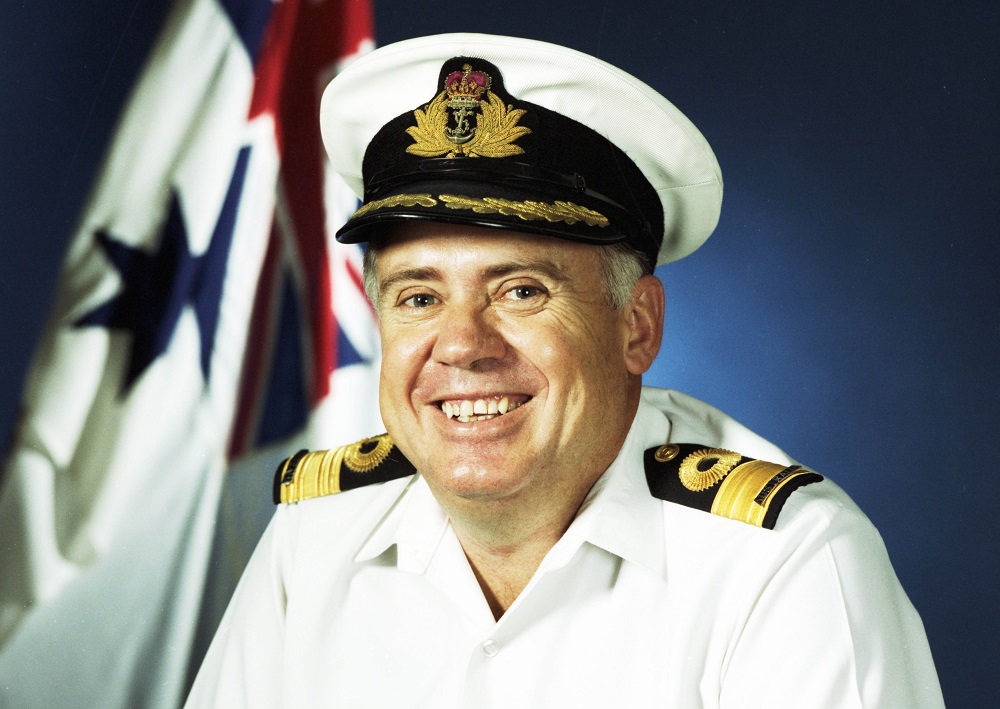

故人となられたTrood議員とBateman博士。このお二人の支援がなければ豪州政府を黙らせることはできなかったであろう。
The late Senator Trood and Dr Bateman. Without the support of these two men, the opposition of the Australian Government could not have been suppressed.
ミクロネシア海洋安全保障事業と日本財団の造船利権
RAND研究所やフランスのifriが、私が一人で立ち上げたミクロネシア海洋安全保障を取り上げてくれることは名誉なことなのだ。しかしこの事業に関与していない日本人から嘘の情報を得て書いているのだ。これは今後のインド太平洋安全保障政策にも影響があるので、実際にこの事業を立ち上げ進めて来た私が、本当の事を書き留めておきたい。
2008年に立ち上げたミクロネシア海洋安全保障事業は私のアイデアを笹川陽平のopinionとして新聞に発表。同案を羽生氏から私に実行するように要請があった。この二人は太平洋島嶼国も海洋安全保障も知らないのである。この二人が私にこの事業を任せた判断は正しい。財団には私以外に太平洋島嶼国の事を知る人も、現場で事業を立ち上げる経験のある人物もいないからだ。
では太平洋島嶼国も海洋安全保障も知らない笹川・羽生は何を期待していたのか?造船利権と新たな国交省・海保利権である。これは本人から直接聞かされた。
「日本財団には造船の予算が余ってるんだよ。これを使ってやる。」
これが援助の現実か。せっかくミクロネシア三カ国大統領から要請させたのにこのレベルの反応か、と悲しくなった。
船を提供しても島嶼国の国家予算ではメンテも運用もできない。この地域をよく知る米豪海軍も反対したのに押し付けるように供与したのである。幸い、羽生氏は私のアドバイスをよく聞いてくれた。「船を出すのでしたら、燃料、メンテ、人材育成、全て持たないとすぐにおかに上がることになります。」
船の供与の他に10年単位の支援を決定した。それでも数十億円が日本の造船業や関係団体に落ちるのである。紐付き援助で良いのだ。内容が良ければ。
一方で私の発案で当該地域の海洋安全保障政策を検討すべく米豪の専門家、国家議員(豪故人Russel Trood議員等)を招いた研究会を立ち上げた。安倍政権のクアッドに一役買ったはずである。さらに豪州のAnthony Bergin博士が提案していた地域海洋調整センターの設置も私が強く押した。このセンターをパラオに置いたのも私の提案である。地政学上の必要性と、運用環境などが理由だ。
監視船供与の手配をした海保の職員は「船のサイズと機能しか議論できないのよ」と米国大使から批判された事がある。「あなたと初めて安全保障の政策協議できたわ」とも。
繰り返すがこの事業は残念ながら日本政府は主導も関与もしていない。財団内でさえも反対されながら私が一人で進めたのである。だからこそ日本政府関係者への指導が重要なのだ。
・・・
The Micronesian MARSEC Project and the Ship Building Concessions of the Nippon Foundation
It is an honour for the RAND Institute and ifri in France to take up the Micronesian Maritime Security project, which I founded alone. But they are writing with false information from Japanese who are not involved in this project. This has implications for future Indo-Pacific security policy, so I would like to write down the truth, as I have actually launched and promoted this project.
The Micronesian Maritime Security Project, which was launched in 2008, started when Yohei Sasakawa published my idea as his own opinon in a newspaper. The same idea was requested to me to implement it by Mr Hanyu former vice Minister of MLIT. These two men knew nothing about Pacific island countries or maritime security. They made the right decision to entrust me with this project. The Foundation has no one who knows about Pacific Island countries or has experience in setting up projects in the field other than me.
Then what did Sasakawa and Hanyu, who knew nothing about Pacific island countries or maritime security, expect? They were expecting shipbuilding concessions as well as new MLIT and Coast Guard concessions. I was told this directly by the Hanyu himself.
"The Nippon Foundation has a surplus budget for shipbuilding. I'll use this."
This is the reality of Aid? I was saddened to hear this level of response after having gone to the effort to have the presidents of the three Micronesian countries request it.
Even if we provide the ships, the national budgets of the island countries are not enough to maintain and operate them. The US and Australian navies, which know the region well, were opposed to this, but JCG and MLIT staff pushed providing the vessels. Fortunately, Mr Hanyu listened to my advice. I told him, "If you are going to provide ships, you have to provide fuel, maintenance, personnel training, and everything else, or ship will soon be a useless."
In addition to the provision of the ship, the decision was made to provide support on a ten-year basis. Billions of yen would still fall to the Japanese shipbuilding industry and related organisations. Tied aid is fine. As long as the substance is good for recipient countries.
Meanwhile, on my initiative, I set up a study group inviting US and Australian experts and national legislators (such as the late Australian Senator Russel Trood) to study security policy in the region. This should have played a role in the Abe Quad. I also pushed hard for the establishment of a Regional Marine Coordination Centre, as proposed by Dr Anthony Bergin of Australia. It was also my suggestion that this centre be located in Palau. The reasons were geopolitical necessity and the operational environment.
The US Ambassador once told me about the Japan Coast Guard official who arranged the provision of the surveillance vessel “They can only discuss the size and function of the vessel. It is the first time I have discussed security policy with you."
Again, unfortunately, the Japanese Government is neither leading nor involved in this project. Even within the foundation, I was opposed to the project, but I carried it out on my own. That is why it is important to provide guidance to Japanese government officials.